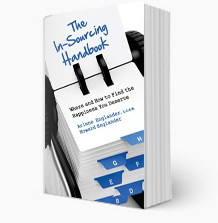Mindfulness is all the vogue nowadays. Over seven hundred medical centers, hospitals and clinics recommend the practice. Commonly known as Mindfulness Based Stress Reduction (MBSR), the yoga/meditation program made popular by Jon Kabat-Zinn almost forty years ago is a common therapeutic application for reducing stress, anxiety and pain, both physical and emotional.
Doctor Zinn’s series of CDs demonstrating Hatha Yoga poses and breathing exercises are sold on-line. But for those of us who can’t consistently find the necessary forty-five minutes per disc, twelve in all, here is a practical acronym of our own we can easily remember and put to use to help assuage anxious moments and put outwardly pressing issues in perspective by reminding us to reflect before we react.
The value of taking it SLOW – Stop, Listen, Observe and Weave.
Stop –Digital technology makes it possible to react instantaneously to every stimulus that triggers us. We act impetuously unlike years ago when Ink wells and nibs made for extreme caution and well thought out sentences. Remember the mimeograph? Make a mistake in the stencil and it was a nightmare to correct. Now we rely on computers, the high speed Internet and a perfunctory Spell-check included in our Word program. We have fallen into the habit of acting without thinking. But there is still a price to pay for precipitous decisions that we regret when it is too late to correct them. To continue the digital reference, before you hit Send, put it in Draft and re-read at a later time. When the passions are boiling, stop and go slow.
Listen – It takes only a few moments to pause and appraise the opposing viewpoints before making a decision. There are always two sides, and more, to a story. Perhaps you recall the play and film Rashomon in which the same event, a murder involving four individuals, is described in four mutually contradictory ways. Contested interpretations of events are common as subjectivity and objectivity clash. Taking time to hear all sides can avoid the lament I often hear in my office, “If only I hadn’t acted so rashly!”
When the opinions and viewpoints are coming from all sides, stop and go slow.
Observe – Besides hearing the argument of others, it’s important to monitor what your personal involvement is, getting a gauge on how much skin you have in the game. Putting aside emotions allows for rational evaluation and enables you to ask the critical question, “What is my intention?” Often we come to realize that our motives are not appropriate to the occasion nor to whom we want to be as men and women of integrity and love. Examine the atmosphere: who really benefits; what’s going on behind the scenes? To be sure you have the whole story, stop and go slow.
Weave – Typically, events do not occur independently. There are threads to virtually every narrative. Together they make the whole. Similarly, the individual feelings we experience exist in relation to a universe of interrelated events. In the same way, how we behave in response also will have a ripple effect, influencing others to their benefit or consequence. Make sure the component clamoring the loudest is not unduly influencing the challenge you are facing; put it in perspective with all the elements that have a role. When the full view of the picture is not entirely in focus, stop and go slow.
When you find that strong emotions and negative thoughts intrude on your ability to stop and go SLOW, as always I am available to help with their release.

